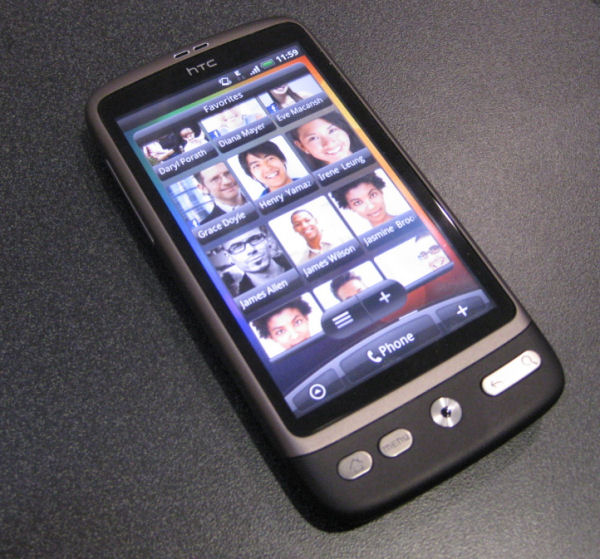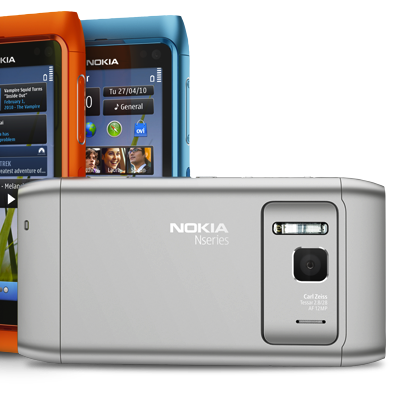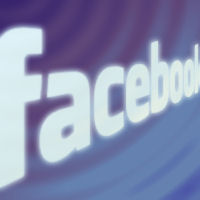
Hello? Facebook login! Hello? Where are my piggies?
In an astonishing statistic released this morning, Web analytics service Experian Hitwise reported that of all the Web searches performed in the United States on the top three search engines Google, Yahoo, and Bing during the first four weeks of March, about two percent on average are for the word facebook. For Yahoo and Bing, Another one percent is for facebook.com, and just less than one percent is for facebook login.
Coupled with statistics for the same month from analytics service comScore, Experian's findings suggest that, from March 1 through March 27, searches for a way to get to Facebook other than through typing the address or clicking on a bookmark, accounted for as many as 175.84 million Google searches in the US, over 78.9 million Yahoo searches, and over 80 million Bing searches.

No, Microsoft did not say Android steps on its IP
A spokesperson for Microsoft's legal department confirmed to Betanews this afternoon that a precise legal interpretation of the company's patent agreement announced late yesterday with phone maker HTC is accurate, but interpretations of that announcement that imply Microsoft will charge royalties to HTC for its use of the Android operating system, are inaccurate.
"This agreement covers HTC's use of Microsoft technology that may appear in Android," the spokesperson told Betanews, affirming a specific interpretation of the language that we sought clarification on. As the announcement reads, "Microsoft Corp. and HTC Corp. have signed a patent agreement that provides broad coverage under Microsoft's patent portfolio for HTC's mobile phones running the Android mobile platform. Under the terms of the agreement, Microsoft will receive royalties from HTC." (emphasis ours)

10 reasons to get excited about the Nokia N8
Move over Apple, Nokia isn't ready to give up its market share leading position just yet. After two failed flagship smartphone attempts -- the N97 and N900 -- Nokia has cued up the drool-worthy N8 for third quarter release. I'm suddenly excited about a Nokia handset again, and you should be, too. The N8 might also be the Nokia handset to crack the US market.
Nokia is leaning on its strengths in hardware innovation, while improving software and services. The handset manufacturer has long excelled at hardware, whereas Apple does much better with software. For example, Nokia shipped cell phones with great cameras years before Apple sold one iPhone. But Nokia has struggled to extend steller photo and video capabilities into the capacitive touchscreen era.

AOL's rebuilding effort continues, sells long-running IM service ICQ at a loss
Russian Internet investment firm Digital Sky Technologies will be acquiring ICQ from AOL Inc. for $187.5 million, the companies announced today.
Former Internet service provider AOL purchased ICQ creators Mirabilis Ltd. for $407 million in 1998. At the time, the free ICQ chat client was one of the most popular pieces of free software available.

New hope for free encoding in Blu-ray videos with x264
The problem for independent video producers and enthusiasts has been the inability to encode videos that can be burned to Blu-ray Discs, and then actually played on BD consoles. That changed yesterday as Jason Garrett-Glaser, the leader of the open source x264 project that has seen success with DVDs, announced his team was able to encode a playable Blu-ray video using entirely free software.
That disc is being released as a kind of "Hello, World" effort for the high-definition format. It contains free videos folks have probably seen before, such as the Creative Commons licensed cartoon "Big Buck Bunny." But the image was designed to be small enough (2 GB) to be burned to either a DVD or a BD, to further prove the software's versatility.

Readers react to police raid on Gizmodo editor's home
Yesterday, I asked Betanews readers: "Should the police have been allowed to raid [Jason] Chen's home and confiscate his computers?" How did you answer? I've randomly picked some of the responses -- hoping to filter out some of the noise for better readability (There are more than 135 comments as I write this post).
But first a quick recap of what happened and some of the broader reaction: Yesterday, Gizmodo revealed that on Friday evening, police searched and seized computers from Chen's home. Chen is a Gizmodo editor and writer of the first story about Apple's so-called "next iPhone," which the tech blog paid $5,000 to obtain. Gizmodo has since returned the prototype to Apple.

Windows Embedded Standard 7 released, is it ready for TV yet?
First announced just two weeks after Windows Embedded Standard 2009 was released, Windows Embedded Standard 7 has at last been released to manufacturers, Microsoft announced today. The company says that new devices built on the platform should be arriving soon, and that we should expect to see some "exciting developments" in Windows 7 consumer devices at Computex in June.
Though Windows Embedded Standard 7 can be used in dozens of different environments such as digital signage, thin clients, and industrial control systems, Microsoft has emphasized the value of this version to connected set-top boxes, TVs, and media players.

Sen. Schumer suggests FTC take charge of Facebook's, others' privacy policies
Amid news yesterday of a discovery by an independent programmer of what appeared to be another door left open for Web apps to access Facebook users' personal data, Sen. Chuck Schumer (D - N.Y.) called upon the Federal Trade Commission to take the next step in forming the equivalent of a US "privacy commissioner."
It was the first step in a one-two punch, as Sen. Schumer later joined three other Democrat senators in penning a letter to Facebook CEO Mark Zuckerberg, calling upon him to make his site's privacy policy clearer and tighter, in order to give the FTC less to scrutinize.

Introducing the first Symbian^3 device, Nokia N8
The Symbian Foundation's 100% open source mobile operating system Symbian^3 has officially made its debut today on the new Nokia N8 handset.
Unlike Google's Android, which launched on a mid-range smartphone in late 2008, Symbian^3 is being ushered into the market on a device with cutting-edge equipment.

First genuine BlackBerry OS 6.0 info shows new media player, browser
Research In Motion could deliver sixteen completely new smartphones with built-in telekinesis amplifiers, but it would not satisfy the legions of BlackBerry users who depend on its reliable messaging ability, who need a real Web browser that shows real Web pages, and who would appreciate a media player that doesn't look ported from a Commodore 64.
Why RIM officials can't just deliver the news to WES conference attendees directly is puzzling, but during this second day of the three-day event, the Day 2 keynote offers RIM users a two-minute quick-cut video of BlackBerry OS 6.0, alongside a parade of new enterprise apps. Granted, enterprise apps are important, but what BlackBerry has been lacking this past year is a proper platform for them.

Cops raid Gizmodo editor home -- you don't mess with Steve Jobs
Gizmodo's big "next iPhone" scoop has generated more than pageviews. Now it's the police raid. Late this afternoon -- actually at stock market close -- the gadget blog posted about the police raid, which occurred Friday night at the residence of Gizmodo editor Jason Chen. Law enforcement executed a search warrant before confiscating -- count `em -- four PCs and two servers. Chen wasn't home. The police broke down a door to enter his home.
The timing (Friday night) and location (Chen's home) are oh-so revealing. Somebody wants to send a message to reporters about obtaining information and items that might belong to a big corporation -- say, Apple. While I've publicly scolded Gizmodo for scooping stolen goods (pun intended), the situation as recounted by the tech blog (and not yet corroborated) chills my soul. The action as described stinks of harassment, intended to scare off the free press.

Silverlight revolutionizes beta of next Windows Home Server
Make your connection to Microsoft Windows Home Server "Vail" Public Beta through Fileforum now.
One of Silverlight video's biggest advantages to date has been the server's ability to tweak the bitrate of video playback as it's being played back, and as the bandwidth of the connection varies. It's the smooth streaming feature that premiered last June with Silverlight 3. Now, with Silverlight 4 already well under way, Microsoft today premiered a public beta of a forthcoming release of Windows Home Server, which will be capable of smooth-streaming video to any Silverlight-enhanced client via the Web.

Is there really an iPad interference problem?
A slow, but steadily increasing, trickle of messages on Apple's iPad discussion forums appears to confirm the findings of Princeton University's Network Systems engineers, who dealt this month with a rapid influx of iPads over a concentrated area. What they've been noticing is that Wi-Fi on iPads that are set for dynamic DHCP leases -- assignments of IP addresses to clients for limited time periods -- are failing to renew those leases when time expires, often after just a few hours.
As a result, users' iPads are stuck with the message "Connecting..." and no easy, or apparent, way to renew their network connections. Although Princeton discovered the problem as early as April 4, and Apple forum discussions began April 11, Apple's only suggestion has left some customers struggling.

Lenovo, Sony, HP launch 'green machines' in deeper stripes
Flanked by other eco-wares ranging from Philips light bulbs to a home soda-making machine, PC manufacturers on hand at Pepcom's EcoFocus conference touted new computers that, while Energy Star 5.0-compliant, also happen to be made from recycled and/or non-hazardous stuff.
Lenovo demo'd its new 14-inch L-412 (pictured right) and 15-inch L-512 ThinkPads, two laptops launched last week with customer's choice of Intel Core i3 or Core i5 processors. Both feature palm rests, covers, and cases which are 20% comprised of recycled material, such as office water jugs and old IT equipment.

Facebook scores huge branding coup with 'Like'
The most successful brands share several attributes in common. One of the most important: Ownership of a single word that defines the brand. Last week, Facebook made the word "like" its own, in one of the biggest branding coups in decades.
"Like" is seemingly everywhere this week and associated with Facebook. The social network didn't just extend the mechanism beyond its territorial borders, but claimed ownership over the word, too. Backed by the social network's reach and popularity -- approaching 500 million subscribers -- and Open Graph protocol, the "Like" thumbs-up icon already appears on hundreds of thousands of Web pages outside Facebook. Perhaps then, Facebook's branding coup is double -- not just 'like' but the thumbs-up symbol, too.



